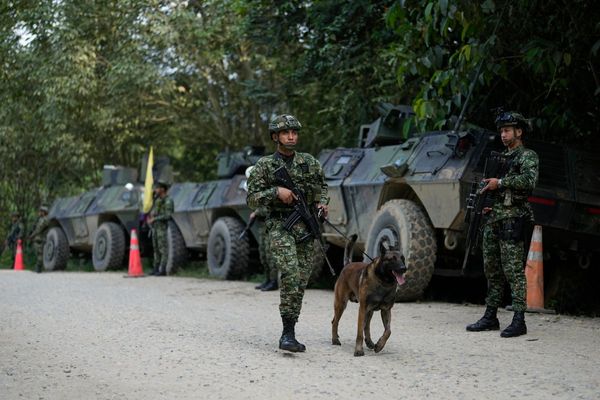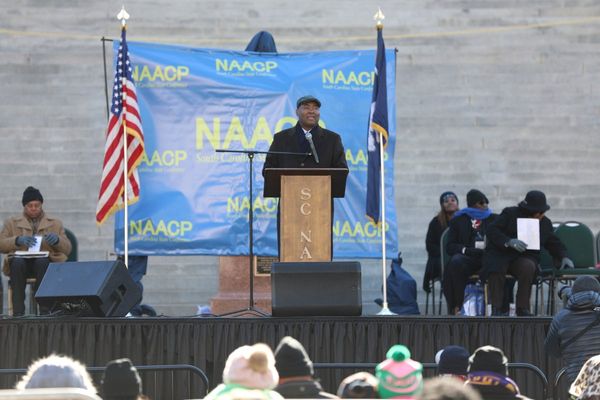
Amid the slew of books, analyses and reports coming out about the May federal election, the media is finally pivoting to an important question: what happens now?
In Lone Wolf: Albanese and the New Politics, the latest Quarterly Essay, journalist Katharine Murphy attempts to answer this question by explaining exactly who Anthony Albanese is and how he ended up as the nation’s prime minister.
Until now we’ve relied on the 2016 biography by The Saturday Paper’s chief correspondent Karen Middleton, published when Albanese seemed marooned on the Shorten frontbench. Now, Murphy’s essay will shape just how the Canberra press gallery will come to understand him as prime minister and how they’ll analyze and report what the government does.
As Murphy admits, she expected Morrison to be reelected. Most of the press gallery seemed to agree: why waste time trying to figure out just another opposition leader? Now the gallery is catching up on the task of setting its collective assumptions of just who Albanese is.
How those assumptions get set matters. Just last year, we saw how Sean Kelly’s brutal, the-PM-has-no-clothes takedown of Scott Morrison in The Game became accepted wisdom. Morrison never really recovered.
Murphy draws a strong picture. She captures the political smarts — the emotional intelligence in the practice of government — that Albanese brings to the role. It’s an important quality for a leader: Kevin Rudd was largely brought down once the gallery decided he lacked the necessary emotional intelligence to manage the party’s over-eager rising stars.
Murphy carries us through the political experiences that shaped the prime minister: the 1980s inner-party fights, his mentoring by former ALP deputy leader Tom Uren, and on through his still-young landing on Labor’s backbench in 1996, crashing into the ambitions of the left’s other would-be leader Martin Ferguson.
However, her focus on Albanese’s handling of the climate, as both opposition leader and prime minister, could have been illuminated with a bit more detail regarding his long-term engagement on the issue. It was, after all, his policy work as opposition minister for environment, heritage and water leading up to the Rudd election that made him a senior policy thinker on the frontbench.
Murphy understands that if there was a moment when Albanese rose to the future prime ministerial shortlist, it was when, almost alone among the party leaders, he had the judgment to oppose the disastrous defenestration of Rudd in 2010, recognising in advance that it would destroy one of those rarest of political animals: Labor prime ministers.
It positioned him as the party members’ favourite when he grasped the opportunity of the Rudd-created leadership ballot in 2013, when exhaustion over the Rudd-Gillard fights had emptied out Labor’s frontbench.
As regular readers of Murphy’s style in Guardian Australia would recognise, she writes breezily, stepping through the decades with a light touch on the electoral campaign before jumping into the post-election challenges. Though like most political writing, the essay leans more into politics than policy, shifting a bit too quickly through his years in opposition and then as a senior minister in complex portfolios.
The narrative is also interrupted by a chapter that lurches to report the rise of the teals. An important story clearly told, but a distraction from the “how did the government get here” arc. Murphy’s essay is an early draft of how the media are coming to think of Albanese. There’s still a way to go before the gallery settles on a consensus on him.
The problem? Albanese is not the sort of person the parliamentary watchers on the Canberra balcony are used to seeing at the prime ministerial podium. It’s not just the now well-publicised childhood in public housing, nor being the only son of a single mother. It’s not even that he came out of the mainstream left of the party.
Perhaps it’s the fact he hasn’t spent his 20-odd pre-leader parliamentary years giving the gallery the impression he was openly maneuvering for the top job. Or that he’s seemed to prefer to exercise influence out of the public eye. Or that maybe, as the accepted wisdom seems to have become, he’s just been underrated.
Not everyone missed him. If, as Oscar Wilde says, “imitation is the greatest form of flattery that mediocrity can pay to genius”, perhaps we should remember Kelly’s suggestion in The Game that Morrison based his fake daggy-dad persona on Albanese.
For Murphy, Albanese has built his own political image somewhere between humble brag and humility. He’s a gut-instinct politician, she says, who “intuits as much as he plans and calculates”.
To explain this conundrum of a prime ministerial contender hiding in plain sight for decades, Murphy reaches for the “lone wolf” analogy to ask whether the outsider on the Shorten team could become a team player. It’s a rare misstep in Murphy’s analysis. As she reports, Albanese had long been building his own pack.
The examples she gives from the opposition leader years — the embrace of child care in his first budget reply, the climate change/health reshuffle between Chris Bowen and Mark Butler — all came with extensive consultation and internal agreement (which Murphy reports).
The “lone-wolf” metaphor threatens to mislead with a look-back at the poor leadership style of the captain’s-pick culture that has degraded Australian politics and splintered parties over the past 15 years. That’s not the Albanese I’ve been watching for the past few decades.
Murphy’s narrative suggests a better concluding analogy might have been: leader of the pack. First his own, then Labor, and now the country. After all, her essay is attempting to ask a modern version of the question The Shangri-Las asked all those years ago: is Australia really going out with him?
Christopher Warren worked on Tom Uren’s staff in the 1980s, including a period overlapping with Albanese.







